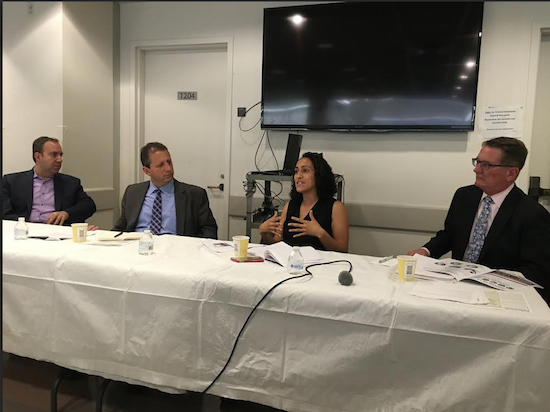Crisis in Small Retail: Hot topic addressed at Brooklyn Chamber forum

In parts of Brooklyn there’s a crisis in small retail which is so vital to the community it serves. Led by Carlo Scissura, the Brooklyn Chamber of Commerce (BCC) addressed this issue at the forum on Friday. Businesses on some of Brooklyn’s most notable retail corridors – Smith Street, Montague Street and 7 th Avenue, to name a few — have struggled to stay open. These areas have experienced a high business turnover rate and have been plagued by vacant storefronts.
In response to this growing problem, the BCC assembled a panel of experts who shared their insights and advice on this pressing issue and discussed practical solutions. Carlo A. Scissura, president and CEO of the BCC was moderator, and welcomed Councilmember Brad Lander, District 39; Larisa Ortiz, principal of Larisa Ortiz Associates; and Tim King, managing partner of CPEX Real Estate.

Brooklyn Boro
View MoreNew York City’s most populous borough, Brooklyn, is home to nearly 2.6 million residents. If Brooklyn were an independent city it would be the fourth largest city in the United States. While Brooklyn has become the epitome of ‘cool and hip’ in recent years, for those that were born here, raised families here and improved communities over the years, Brooklyn has never been ‘uncool’.